Learn all about how your diet can benefit you during menopause symptoms.
Today we are going to deal with a very important and delicate subject for women; The Menopause and Diet: Symptoms and Treatments, let's see a summary of what the menopause is.
The moment in life when most women's menstrual periods cease permanently and they can no longer get pregnant. The menopause usually occurs between the ages of 49 and 52.
Health professionals often define menopause as a situation in which a woman has had no vaginal bleeding for at least a year. It can also be defined as a decrease in hormone production in the ovaries.
For women who have had surgery to remove the uterus but still have ovaries, menopause can be defined as having occurred at the time of surgery or at the time when hormone levels decrease. When the uterus is removed, symptoms usually manifest earlier, on average at the age of 45.
Está ligada a muitos sintomas desconfortáveis e aumenta o risco de certas doenças, sua dieta pode ajudar a reduzir os sintomas e facilitar a transição.
This article discusses how what you eat can affect your symptoms.
What changes occur during the menopause?
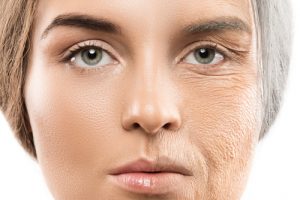
During the transition to menopause, the hormone oestrogen begins to decline, interrupting its normal cyclical patterns of oestrogen and progesterone.
Declining estrogen levels negatively impacts your metabolism, potentially leading to weight gain. These changes can also affect your cholesterol levels and how your body digests carbohydrates.
Many women experience symptoms such as hot flushes and difficulty sleeping during this transition period.
Hormonal changes lead to a decrease in bone density, which can increase the risk of fractures.
Felizmente, fazer alterações em sua dieta pode ajudar a aliviar os sintomas da menopausa.
Menopause is a natural transition in a woman's life as her menstrual cycles come to an end. Changes in hormones can cause symptoms such as hot flushes and poor sleep and can negatively affect metabolism and bone density.
Diet: Foods and their reactions

There is evidence that certain foods can help relieve some menopausal symptoms, such as hot flushes, poor sleep and low bone density.
Dairy Products

The decline in oestrogen levels during the menopause can increase women's risk of fractures. women's risk of fractures.
Dairy products, such as milk, yogurt and cheese, contain calcium, phosphorus, potassium, magnesium and vitamins D and K - all of which are essential for bone health.
In a study of almost 750 postmenopausal women, those who ate more dairy products and animal protein had significantly higher bone density than those who ate less.
Dairy products can also help improve sleep. A review study found that foods rich in the amino acid glycine, found in milk and cheese, promoted deeper sleep in menopausal women.
Some evidence links dairy consumption to a reduced risk of premature menopause, which occurs before the age of 45.
In one study, women with the highest intake of vitamin D and calcium - which cheese and fortified milk are rich in - had a 17% reduced risk. which cheese and fortified milk are rich in - had a 17% reduced risk of early menopause. early menopause.
Healthy Fats

Omega-3 fatty acids can benefit women going through the menopause.
A review study of 483 menopausal women concluded that the supplements
omega-3 decreased the frequency of hot flashes and the severity of night sweats.
However, in another review of 8 studies on omega 3 and menopausal symptoms, only a few studies supported the beneficial effect of the fatty acid on hot flushes. The results were inconclusive.
It may be worth testing whether increasing your omega-3 intake improves your menopause-related symptoms.
Foods richer in omega-3 fatty acids include fatty fish such as mackerel, salmon and anchovies, and seeds such as flax seeds, chia seeds and whole grains.
Whole grains are rich in nutrients, including fiber and B vitamins such as thiamine, niacin, riboflavin and pantothenic acid.
Uma dieta rica em grãos integrais tem sido associada a um risco reduzido de doença cardíaca, câncer e morte prematura.
Pesquisadores descobriram que as pessoas que comeram três ou mais porções de grãos integrais por dia tinham um risco 20-30% menor de desenvolver doenças cardíacas e diabetes, comparando com pessoas que comeram carboidratos refinados.
A study of more than 11,000 postmenopausal women found that eating 4.7 grams of whole fiber per 2,000 calories a day reduced the risk of early death by 17%, compared to eating just 1.3 grams of whole fiber per 2,000 calories.
Whole grain foods include brown rice, whole grain bread, barley, quinoa, khorasano wheat (kamut®) and rye. Look for "whole grain" listed as the first ingredient on the label when evaluating which packaged foods contain whole grains.
Vegetables and fruit

They are rich in vitamins and minerals, fiber and antioxidants. For this reason, American dietary guidelines recommend filling half your plate with fruit and vegetables.
Em um estudo de intervenção de um ano em mais de 17.000 mulheres na menopausa, aqueles que comem mais vegetais, frutas, fibras e soja experimentaram uma redução de 19% nas ondas de calor em comparação com o grupo controle. A redução foi atribuída à dieta mais saudável e à perda de peso.
Cruciferous vegetables can be especially useful for postmenopausal women. In one study, eating broccoli decreased levels of a type of estrogen linked to breast cancer, while increasing levels of a type of estrogen that protects against breast cancer.
Dark berries can also benefit women going through the menopause. In an eight-week study of 60 menopausal women, 25 grams a day of freeze-dried strawberry powder lowered blood pressure compared to a control group. However, more research is needed.
In another eight-week study of 91 middle-aged women, those who took 200 mg of grape seed extract supplements daily experienced fewer hot flushes, better sleep and lower rates of depression, compared to a control group. rates of depression, compared to a control group.
Foods containing phytoestrogens
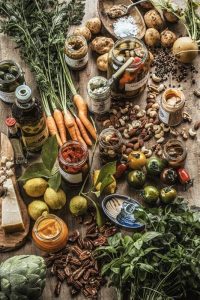
Phytoestrogens are compounds in foods that act like estrogens that are already weak in your body.
Houve alguma controvérsia sobre a inclusão destes na dieta, a pesquisa mais recente sugere que eles podem beneficiar a saúde – especialmente para as mulheres que passam pela menopausa.
Foods that naturally contain phytoestrogens include soybeans, chickpeas, peanuts, flax seeds, barley, grapes, berries, plums, green and black tea and many more.
In a review of 21 soy studies, postmenopausal women who took soy isoflavone supplements for at least four weeks had 14% higher estradiol (estrogen) levels compared to those who took a placebo. However, the results were not significant.
In another review of 15 studies ranging from 3 to 12 months, phytoestrogens including soy, isoflavone supplements and red clover were found to decrease the incidences of hot flushes compared to control groups, with no serious side effects.
Protein quality
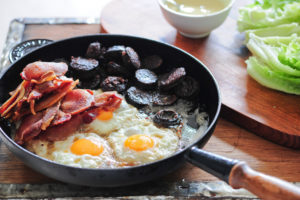
The decline in oestrogen during the menopause is linked to a decrease in muscle mass and bone strength.
For this reason, women going through the menopause should eat more protein. The guidelines recommend that women over 50 eat 0.45-0.55 grams of protein per kilogram (1-1.2 grams per kg) of body weight daily - or 20-25 grams of high-quality protein per meal.
In the USA, the Recommended Dietary Allowance (RDA) for protein is 0.36 grams per pound (0.8 grams per kg) of body weight for all adults over the age of 18, which represents the minimum necessary for health.
The recommended macronutrient distribution range for protein is 10 to 35% of total daily calories. calories.
In a recent one-year study of 131 postmenopausal women, those taking 5 grams of collagen peptides daily had significantly better bone mineral density compared to those taking a placebo powder.
Collagen is the most abundant protein in the body.

In a large study of adults over 50, eating dairy protein was associated with an 8% lower risk of hip fracture,
and vegetable protein intake was associated with a 12% reduction.
Protein-rich foods include eggs, meat, fish, vegetables and dairy products. You can add protein powders to smoothies or baked goods.
Too much sugar, carbohydrates and processed foods

In addition to impairing your menopausal transition, high blood sugar causes insulin resistance and metabolic syndrome have been associated with a higher incidence of hot flushes in menopausal women.
Processed foods and added sugars are known to raise blood sugar quickly. The more processed a food is, the more pronounced its effect on blood sugar. Limiting your intake of added sugars and processed foods, such as white bread, cookies and baked goods, can help reduce hot flushes during the menopause.
Diretrizes dos EUA recomendam manter sua ingestão de açúcar adicionado a menos de 10% de sua ingestão calórica diária. Se você comer uma dieta de 2.000 calorias, menos de 200 calorias, ou 50 gramas, deve vir de açúcares adicionados.
Alcohol and caffeine

Studies have shown that caffeine and alcohol can trigger hot flushes in women going through the menopause. A study of 196 menopausal women who were given caffeine and alcohol increased the severity of hot flushes, not their frequency.
Another study associated caffeine intake with a lower incidence of hot flushes. It may be worth testing whether eliminating caffeine affects your hot flashes.
Another factor to consider is that caffeine and alcohol are known sleep disruptors and that many women going through the menopause have difficulty sleeping. If this is the case for you, consider avoiding caffeine or alcohol close to bedtime.
Spicy food

Avoiding spicy foods is a common recommendation for women going through the menopause. Evidence to support this is limited.
A study of 896 menopausal women in Spain and South America examined the association between lifestyle factors and incidences of hot flashes and associated spicy food intake with an increase in hot flashes.
Another study of 717 perimenopausal women in India associated hot flashes with spicy food intake and anxiety levels. The researchers concluded that hot flashes were worse for women with poorer overall health.
Como sua reação aos alimentos picantes pode ser individual, use seu melhor julgamento quando se trata de incluir alimentos picantes em sua dieta e evitá-los se eles parecem piorar seus sintomas.
Foods with a high salt content
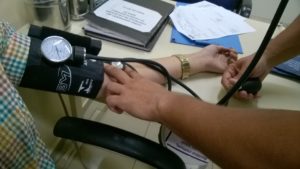
High salt intake has been associated with lower bone density in postmenopausal women. In a study of more than 9,500 postmenopausal women, sodium intake of more than 2 grams per day was associated with a 28% higher risk of low bone mineral density.
After the menopause, the decline in oestrogen increases the risk of developing high blood pressure. Reducingsodium intake can help reduce this risk.
See what the study says below:
Em um estudo randomizado em 95 mulheres pós-menopausa, aqueles que seguiram uma dieta de sódio moderado experimentaram um melhor humor geral, em comparação com as mulheres que seguiram uma dieta geralmente saudável, sem restrição de sal
Key point

The menopause is linked to changes in metabolism, reduced bone density and an increased risk of heart disease. Many women going through the menopause experience unpleasant symptoms such as hot flushes and poor sleep.
Uma dieta rica em frutas, legumes, grãos integrais, proteínas de alta qualidade e produtos lácteos pode reduzir os sintomas da menopausa. Recomendo Projeto Dieta de 17 Dias.
Phytoestrogens and healthy fats, such as omega-3 fatty acids from fish, can also help. You may want to limit added sugars, processed carbohydrates, alcohol, caffeine and high-sodium or spicy foods too.
Estas mudanças simples em sua dieta pode tornar esta transição importante em sua vida mais fácil.
SUMMARY
Incorporar produtos lácteos, gorduras saudáveis, grãos integrais, frutas e legumes, alimentos ricos em fitoestrógenos e fontes de qualidade de proteína em sua dieta pode ajudar a aliviar alguns sintomas da menopausa alimentado pelo Projeto Dieta de 17 Dias a evitar e indicar certos alimentos pode ajudar a reduzir alguns dos sintomas ligados à menopausa, tais como ondas de calor, ganho de peso e sono ruim.

Avoiding processed carbohydrates, added sugars, alcohol, caffeine, spicy foods and foods high in salt can improve menopause symptoms.
Gostou de saber sobre Menopausa e Dieta: Sintomas e Tratamentos? Não deixe de acompanhar os demais artigos do blog, tenho muitos outros artigos para você!




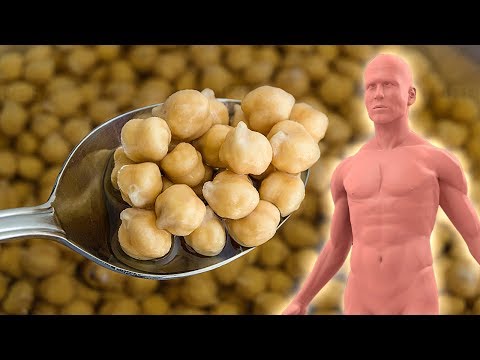
![Como Queimar Gordura Sem Fazer Exercícios [EMAGRECER e PERDER MEDIDAS]](https://treinodietaesaude.com/wp-content/uploads/2025/04/2749_2309_hqdefault-218x122.jpg)
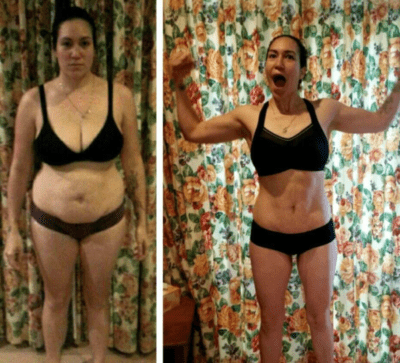
Leave a comment